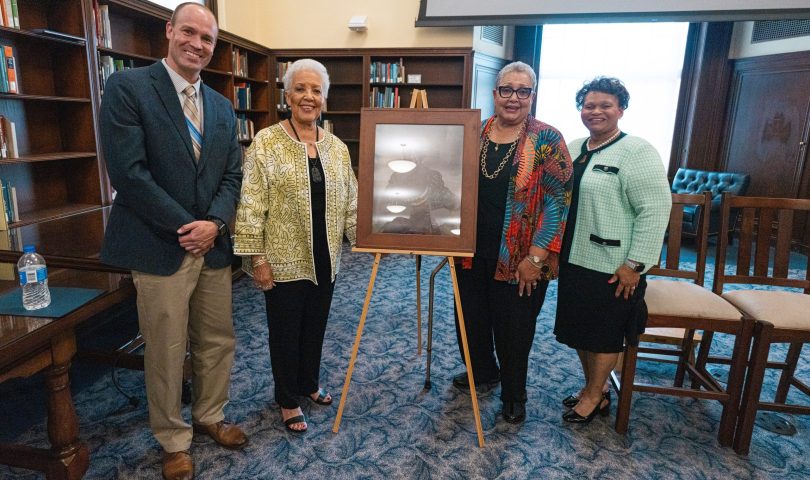West Virginia native and NASA mathematician and space pioneer Katherine Johnson was celebrated Friday by the West Virginia University Libraries and the West Virginia and Regional History Center.
The latest addition to the WVRHC’s Distinguished West Virginians Program was announced and Johnson’s archives, which include notebooks, photographs, correspondence, memorabilia, awards and other materials, was officially opened.
Johnson’s achievements were heralded in the movie “Hidden Figures,” which highlighted the struggles of Black women mathematicians and others working for the early days of NASA.
She calculated astronaut John Glenn’s orbit around Earth for his Feb. 20, 1962, mission, having been asked to verify the numbers produced by NASA’s computers for that flight.
She also contributed to various reports, such as a trajectory analysis for the 1961 Freedom 7 mission with Alan Shepard, America’s inaugural human spaceflight. Alongside engineer Ted Skopinski, she authored “Determination of Azimuth Angle at Burnout for Placing a Satellite Over a Selected Earth Position,” marking the first instance of a woman in the Flight Research Division being credited as an author of a research report.
Johnson was born in White Sulphur Springs and completed high school at 14. She graduated summa cum laude from West Virginia State College (now university) with degrees in math and French. She pursued graduate studies at WVU, where she was one of the first Black graduate students.
In 1953, after teaching for seven years in elementary and high schools in West Virginia and Virginia, she began working as a pool mathematician or “computer” for the Langley Research Center part of the National Advisory Committee for Aeronautics in Hampton, Va. Johnson continued to work as an aerospace technologist until her retirement in 1986.
In November 2015, President Barack Obama awarded Johnson with the Presidential Medal of Freedom. On Sept. 22, 2017, NASA dedicated the Katherine G. Johnson Computational Research Facility in Fairmont. She died Feb. 24, 2020.




